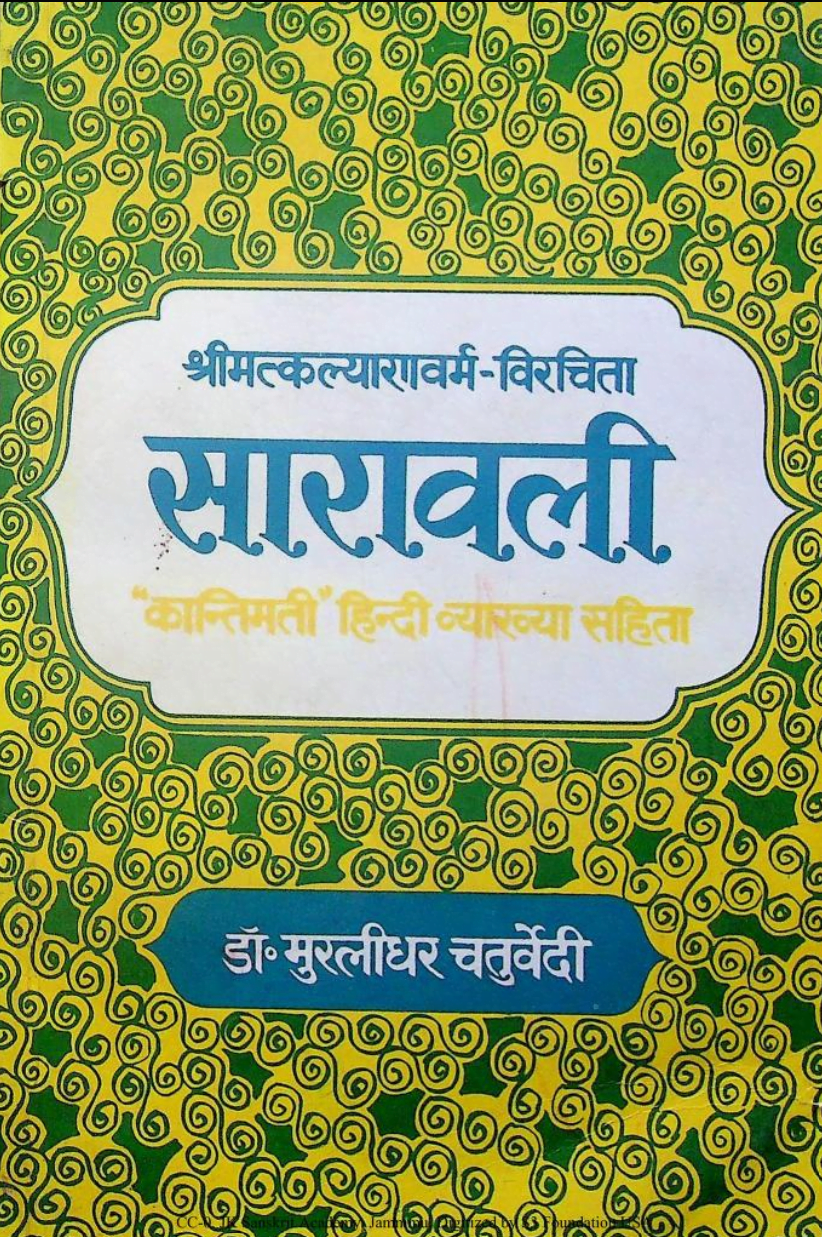Author: Kalyan Varma
About the author:
Kalyan Verma, an esteemed figure in the field of Vedic astrology (Jyotisha), is best known for his comprehensive astrological treatise, “Saravali.” His work has significantly contributed to the understanding and practice of Vedic astrology, and “Saravali” is considered one of the classic texts in this tradition. Known as Astrologer King, Kalyan Verma’s contributions have provided astrologers with a detailed and systematic approach to horoscope interpretation and prediction.
Life and Background
Historical Context:
- Kalyan Verma is believed to have lived during the early medieval period, around the 10th century CE. Specific details about his life, including his place of birth and early education, remain sparse. However, his scholarly work suggests that he was deeply knowledgeable in the astrological sciences and had a strong grounding in Vedic traditions.
Astrological Tradition:
- Kalyan Verma was part of the rich tradition of Vedic astrology, which includes the study of celestial bodies and their influence on human affairs and natural events. His contributions are seen as part of a long lineage of astrological scholarship that sought to codify and elucidate the principles of Jyotisha.
Major Work: Saravali
Overview:
- “Saravali” is Kalyan Verma’s most renowned work. The name “Saravali” means “an assemblage” or “a collection,” reflecting the text’s comprehensive nature, which brings together a wide range of astrological principles and practices.
Structure and Content:
- “Saravali” is organized into 54 chapters (Adhyayas), each dealing with different aspects of astrology. The text covers a vast array of topics, including:
- Fundamental Principles: Introduction to basic astrological concepts, including the nature and characteristics of the planets (Grahas), zodiac signs (Rashis), and houses (Bhavas).
- Horoscope Interpretation: Techniques for casting and interpreting natal charts, emphasizing the significance of planetary positions, aspects, and combinations.
- Yogas: Detailed discussion of various auspicious and inauspicious planetary combinations (Yogas) and their effects on different areas of life.
- Dashas and Transits: Explanation of planetary periods (Dashas) and their influence, as well as the effects of planetary transits (Gochar).
- Predictions: Guidelines for making accurate predictions regarding various life events, such as marriage, childbirth, career, health, and longevity.
- Remedial Measures: Suggested remedies for mitigating negative influences and enhancing positive outcomes, including the use of mantras, gemstones, and rituals.
Key Themes and Teachings:
- Interplay of Planets and Houses:
- Kalyan Verma emphasizes the intricate interplay between planets and houses in a horoscope. He provides detailed descriptions of how planetary positions and aspects influence different areas of life.
- Comprehensive Analysis:
- “Saravali” is noted for its thorough and systematic approach to horoscope analysis. Kalyan Verma covers all aspects of astrology, from the fundamentals to advanced predictive techniques.
- Practical Application:
- The text is designed to be practical and user-friendly, making it accessible to both novice and experienced astrologers. Kalyan Verma’s clear explanations and systematic methods provide valuable tools for accurate and insightful predictions.
- Balance of Fate and Free Will:
- Kalyan Verma integrates the concept of karma into his astrological teachings, suggesting that while planetary influences are significant, individuals also have the capacity for free will and self-determination. He advocates for the use of astrological remedies to mitigate adverse effects and enhance one’s life path.
Influence and Legacy
Astrological Community:
- “Saravali” has become a cornerstone text in the study and practice of Vedic astrology. Its detailed and systematic approach has made it a standard reference for astrologers seeking to deepen their knowledge and refine their predictive skills.
Educational Impact:
- The text is widely used in the education and training of astrologers. Its comprehensive coverage and practical insights make it an essential resource for students and practitioners of Jyotisha.
Cultural Significance:
- Vedic astrology remains an integral part of Hindu culture, influencing various aspects of life such as marriage, career, health, and spirituality. Kalyan Verma’s contributions have helped preserve and propagate this ancient knowledge, ensuring its continued relevance in contemporary society.
Conclusion
Kalyan Verma, through his seminal work “Saravali,” has made significant contributions to the field of Vedic astrology. His detailed and systematic approach to astrological interpretation has provided valuable insights and practical tools for generations of astrologers. The enduring legacy of his teachings reflects his profound understanding of Jyotisha and his dedication to advancing the field. Kalyan Verma’s work continues to inspire and guide practitioners, preserving the rich tradition of Vedic astrology for future generations.






